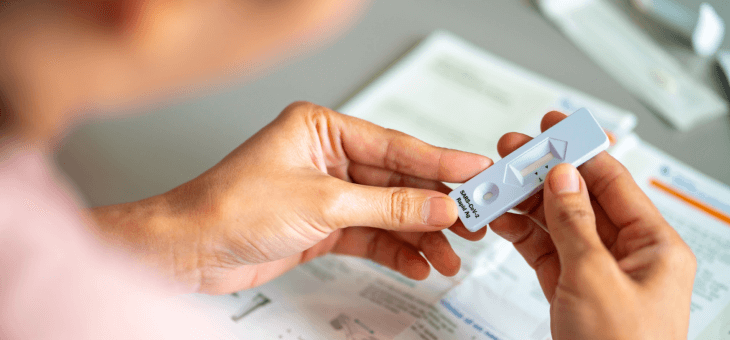Australians aged 70 and over are being encouraged to wait until they’ve had their COVID-19 vaccination before getting their flu shot.
The federal government’s Australian Technical Advisory Group on Immunisation says the “preferred minimum interval” between the two doses is 14 days.
Last year, Australians were urged to get their flu shots early due to fears about a “dual peak” of flu and coronavirus.
The Pfizer vaccine requires two doses 21 days apart and the AstraZeneca two doses 12 weeks apart.
Immunisation Coalition chairman Rod Pearce says we should take the first jab offered.
“If it was a choice, have the COVID [vaccine] when it’s available because the rollout of that is less predictable,” Dr Pearce told ABC News.
“The influenza vaccine will definitely be here in April and we should have an abundant supply because it’s manufactured here in Australia.”
Robert Booy, a senior professorial fellow at the National Centre for Immunisation Research, said older Australians should get the COVID-19 jab before the flu vaccine.
“It comes down to practicalities; most people who are at a high risk in the elderly or occupational, or in the chronic disease groups, should probably get COVID vaccines first,” he said.
Professor Booy said this was because the threat of coronavirus was still “relatively high” and had a higher death rate than the flu in that age group.
Read more: High vaccine willingness in Australia
Nine reports the that Therapeutic Goods Administration (TGA) estimates more than 60 per cent of those who receive the Pfizer vaccine will experience fatigue, more than half will get a headache, about one-third will experience muscle pain and one in five joint pain.
Similar symptoms are reported from the AstraZeneca vaccine.
Flu rates are at historically low levels, following social distancing and the COVID-19 lockdowns in 2020, but prominent Melbourne GP Mukesh Haikerwal told Nine that anyone who does not qualify for the next stage of the coronavirus vaccine rollout (1b) should get their flu jab “as soon as it becomes available”.
Phase 1b, scheduled to begin in April, aims to vaccinate “all adults aged over 70, younger adults with underlying medical conditions and high-risk workers including defence personnel, police, fire emergency services and meat processing workers”.
Dr Haikerwal says younger Australians and those not included in the 1b phase should get the flu shot as soon as possible to ease the strain on the health system.
TerryWhite Chemmart chief pharmacist Brenton Hart has warned Australians not to be lulled into a “false sense of complacency” about influenza.
“It is highly infectious, and it is important for people to continue getting vaccinated and to plan now so they can be vaccinated for both the flu and COVID-19 in a timely manner.”
A recent study found the AstraZeneca vaccine is 81 per cent effective when a second dose is given three months after the first.
Efficacy was only 55 per cent if the second dose was given less than six weeks after the first.
Jodie McVernon, a director of epidemiology at the Peter Doherty Institute for Infection and Immunity, said this was consistent with other similar vaccines.
Read more: Vaccine myth-busting agency
A potential landmark unfair dismissal case involving vaccinations is being heard by the Fair Work Commission.
An aged care worker filed an unfair dismissal claim after allegedly losing her job after refusing the flu vaccination from a company that had made it mandatory.
The commission’s current advice is: “In the current circumstances, the overwhelming majority of employers should assume that they won’t be able to require their employees to be vaccinated against coronavirus.
“There are currently no laws or public health orders in Australia that specifically enable employers to require their employees to be vaccinated against coronavirus. The Australian government’s policy is that receiving a vaccination is voluntary, although it aims to have as many Australians vaccinated as possible.”
Lawyer Nick Duggal told Human Resources Director that employers must consider whether vaccination is “necessary in order to fulfill the inherent requirements of the position”.
“In high-risk industries or industries which need to comply with other government directions, it is possible that it’s an inherent requirement of the position.
“During the pandemic, the Victorian deputy chief health officer made a direction which required any person attending a residential aged care facility to have an up-to-date vaccination against influenza. As a high-risk industry, the case for mandatory vaccinations is far simpler than other sectors.”
When do you plan to take your flu shot? Do you know when you should have the COVID-19 immunisation?
Read more: Details about Australian COVID vaccinations
If you enjoy our content, don’t keep it to yourself. Share our free eNews with your friends and encourage them to sign up.

